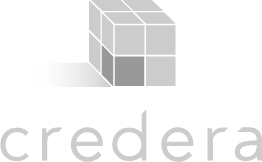by The Thomas B. Fordham Institute’s Adam Emerson (@adamjemerson), former Director of School Choice Programs, & Michael Brickman (@BrickM), National Policy Director
This year, the Thomas B. Fordham Institute released a groundbreaking study, What Parents Want: Education Preferences and Tradeoffs, that examined the educational goals and school attributes that are most important to parents. Fordham teamed with market-research firm Harris Interactive to segment parents into distinguishable groups, something that the private sector does all the time in order to find ways to customize their products.
But can public education be so customized? Fordham’s findings suggest that, yes, school systems and charter schools can better attend to parent preferences. Fordham and Harris Interactive couldn’t easily segment parents into distinctive groups, but we did identify parents who prioritized individual school attributes or student goals that most other parents viewed as less important. From this six market “niches” surfaced:
- Pragmatists (36 percent of K-12 parents) who value schools that offer vocational classes or job-related programs
- Jeffersonians (24 percent) who value instruction in citizenship, democracy, and leadership
- Test-Score Hawks (23 percent) who look for schools with high test scores
- Multiculturalists (22 percent) who want their kids to learn to work with others of diverse backgrounds
- Expressionists (15 percent) who want schools that emphasize art and music instruction
- Strivers (12 percent) who want a pathway to a top-tier college
But something surprising also rose to the surface: Must-haves didn’t vary greatly. Everyone wanted a high-quality instruction in core subjects and STEM fields; they wanted their kids to learn to think critically and to communicate strongly; and they wanted their schools to instill good study habits.
So what does this mean for Colorado? For starters, Fordham’s findings imply that districts such as Denver and Douglas County have done well to maximize their educational “portfolios” so that more families have school choice. But, overall, Colorado still has far to go to maximize choice.
Prospective charters still don’t have many authorizers who care about choice and charter quality. Mostly, school districts are the primary charter sponsor. An independent chartering board isn’t all that independent from the state education department, according to the Center for Education Reform, and can only authorize charters in certain location. Denver has gotten a lot of attention for its portfolio approach, which positions the district mostly as a manager of high-quality options, but that still places other Colorado districts in the status quo.
And if the Fordham Institute study has shown anything, it’s that many parents won’t find what they’re looking for in the status quo. Once their non-negotiables are met—a good core education and strong learning skills—many parents want something special. Some want a school with high test scores. Others want diversity. Still others value art and music. It would be hard, outside a system of school choice, for all of these parents to get what they want.
Many industries in the private sector have figured out not only that they need to customize their offerings, but they have learned, through a better understanding of their customers, how to customize. The education industry—even in choice-friendly Colorado—still has a lot to learn.
 |
| 


